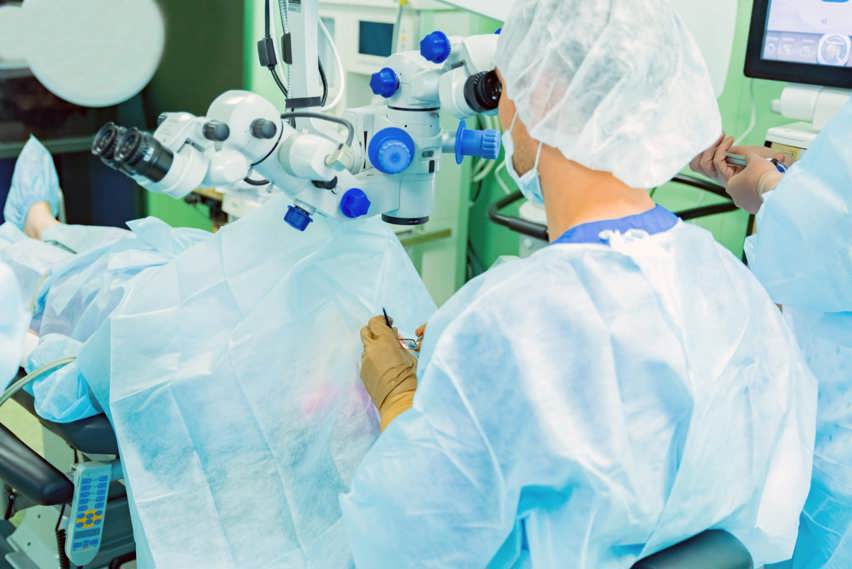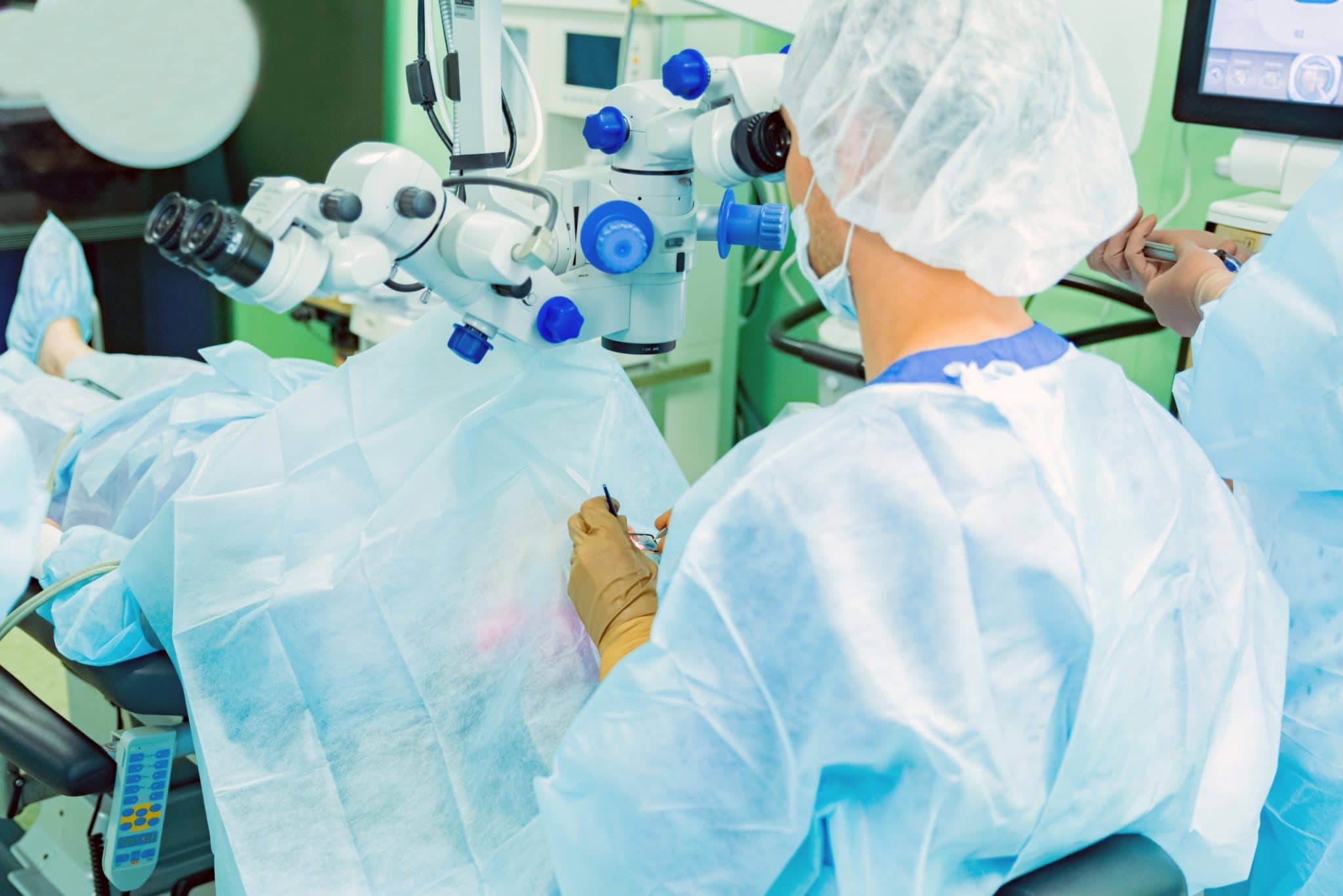The simple answer to this question is that it depends on a number of factors.
Firstly, let’s have a quick recap of what a cataract is:
Cataracts are generally diagnosed by your optometrist when the natural lens of your eye becomes cloudy, mainly due to age but this is not always the case.
Our lenses are very clear when we are young, just like glass, allowing us to see through them easily with excellent contrast.
As we grow older, they start to become less clear. Opacities develop on and around the lens surface presenting visual limitations and even impairment.

What happens in cataract surgery?
Cataract surgery involves replacing the cloudy crystalline lens inside your eye with an artificial intraocular lens implant (IOL). It’s the most common operation performed in the UK, with a high success rate in improving your vision.
It can take up to 8 weeks to fully recover.
After the surgery, you should be able to see objects in better focus, have reduced glare with light scattering from surfaces and have improved colour contrast.
For more information about what happens during this procedure, read our full cataract surgery guide.
Are glasses still needed after cataract surgery?
It is a common misconception that with every surgery, the need for spectacles will disappear.
If only that was the case!
It is rare that you don’t need any form of correction for different activities. Most people will still need to wear glasses for either driving or reading, if not both.
The main focus of the surgery is to replace the cloudy lens with a clear lens to improve clarity.
Nowadays, technology has given surgeons access to ‘powered’ lenses which, they regularly use to also improve from the level of vision patients had previously which is considered to be a bonus! Careful calculations are performed before choosing a power to mimic the natural power of the lens system inside your eye.
As experienced opticians, we are sensible in painting a particular picture for patients when discussing possible outcomes of surgery. We are optimists and realists at the same time.
We see many patients every year who have undergone successful surgeries with almost every patient requiring spectacles, at least for reading. Hence, it’s imperative that the advice given to our patients is balanced.

Why do some people need glasses after cataract surgery and others do not?
If you choose to have cataract surgery under the NHS, it’s likely you will need computer and reading glasses or other bespoke eyewear afterwards, depending on your visual needs.
- The NHS primarily focuses on correcting your distance vision which is essential in day-to-day life.
- Private options allow surgeons to manipulate the process to cater for distance and near activities. The surgeons can implant monovision and multifocal lenses inside your eye. This can potentially eliminate the need for spectacle wear, but it isn’t guaranteed.
Following your cataract surgery, there may be circumstances where optimum vision will be required. Spectacles will enhance your vision for those particular needs, for example, playing sports.
The majority of patients in the UK opt to have their surgeries carried out under the NHS and affiliated partners. The NHS delivers excellent results daily.
For more information regarding cataracts, surgery and post surgery spectacles, please contact your optometrist.




